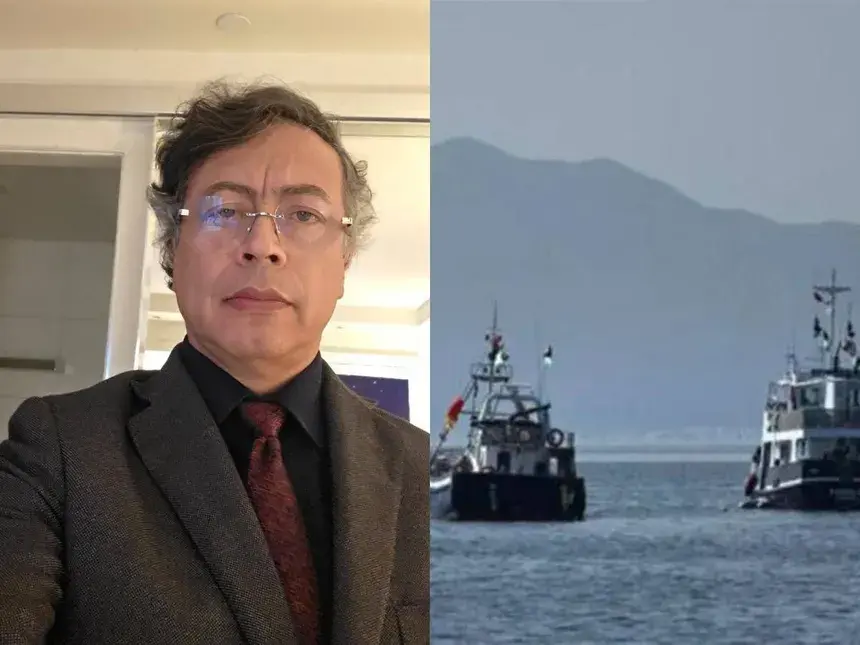What happened: the flotilla and its interception 🚢
The Global Sumud Flotilla, a mission comprised of over 40 vessels and nearly 500 activists, aimed to deliver humanitarian aid to Gaza and challenge the existing blockade. Among its participants were parliamentarians, public figures, and activists. AP News+3AP News+3The Guardian+3
Israeli forces intercepted the convoy in international waters, detained many participants, and directed several vessels to Israeli ports. The Washington Post+3AP News+3Financial Times+3
Two Colombian women aboard the flotilla — Manuela Bedoya and Luna Barreto — were among those detained during the operation. Their detention catalyzed Colombia’s forceful response. AP News+3Middle East Monitor+3The New Arab+3
Colombia’s response: the expulsion and its meaning ✉️
President Gustavo Petro declared that “the entire diplomatic delegation of Israel” must leave Colombia, labeling the interception a “new international crime” by Israeli leadership. The New Arab+4The Guardian+4AP News+4
In addition to the expulsion, Colombia has suspended its free trade agreement with Israel — a further signal of diplomatic rupture. The New Arab+3AP News+3AP News+3
Petro’s government sharply condemned the interception, accusing Israeli forces of violating international law and the rights of the two Colombian nationals. AP News+3Middle East Monitor+3The New Arab+3
Global reactions & regional reverberations 🌐
Many nations expressed condemnation of Israel’s actions, calling the interception an excessive use of force or a breach of maritime law. The Guardian+3The Guardian+3Financial Times+3
Protests erupted in cities across Europe and Latin America, with activists demanding the protection and release of detainees. The Guardian+2The Guardian+2
The move by Colombia stands out — it is a rare example of a Latin American state taking direct diplomatic action against Israel over Gaza policy.
What’s uncertain — and what’s next 🔍
The safety and fate of those detained on the flotilla, including the two Colombians, remain questions. Will they be released, deported, or face legal proceedings?
Will Israel respond diplomatically or retaliate politically? How it handles Colombia’s protest and demands will send signals.
Will other countries escalate responses — such as cuts in ties, expulsions, sanctions — as tensions over Gaza continue?
How will this decision affect Colombia’s internal politics and its international alliances, particularly with nations aligned to Israel or Gaza?
A human reflection 🌿
This is more than a diplomatic headline. It is about two Colombians separated from home, activists risking sea and bureaucracy to bring aid, and a nation declaring it will not stay silent.
In a world where power often drowns out voices, Colombia’s act is loud and symbolic. It is a stand for justice, even in turbulent seas.

Comments 0
No comments yet. Be the first to share your thoughts!
Leave a comment
Share your thoughts. Your email will not be published.